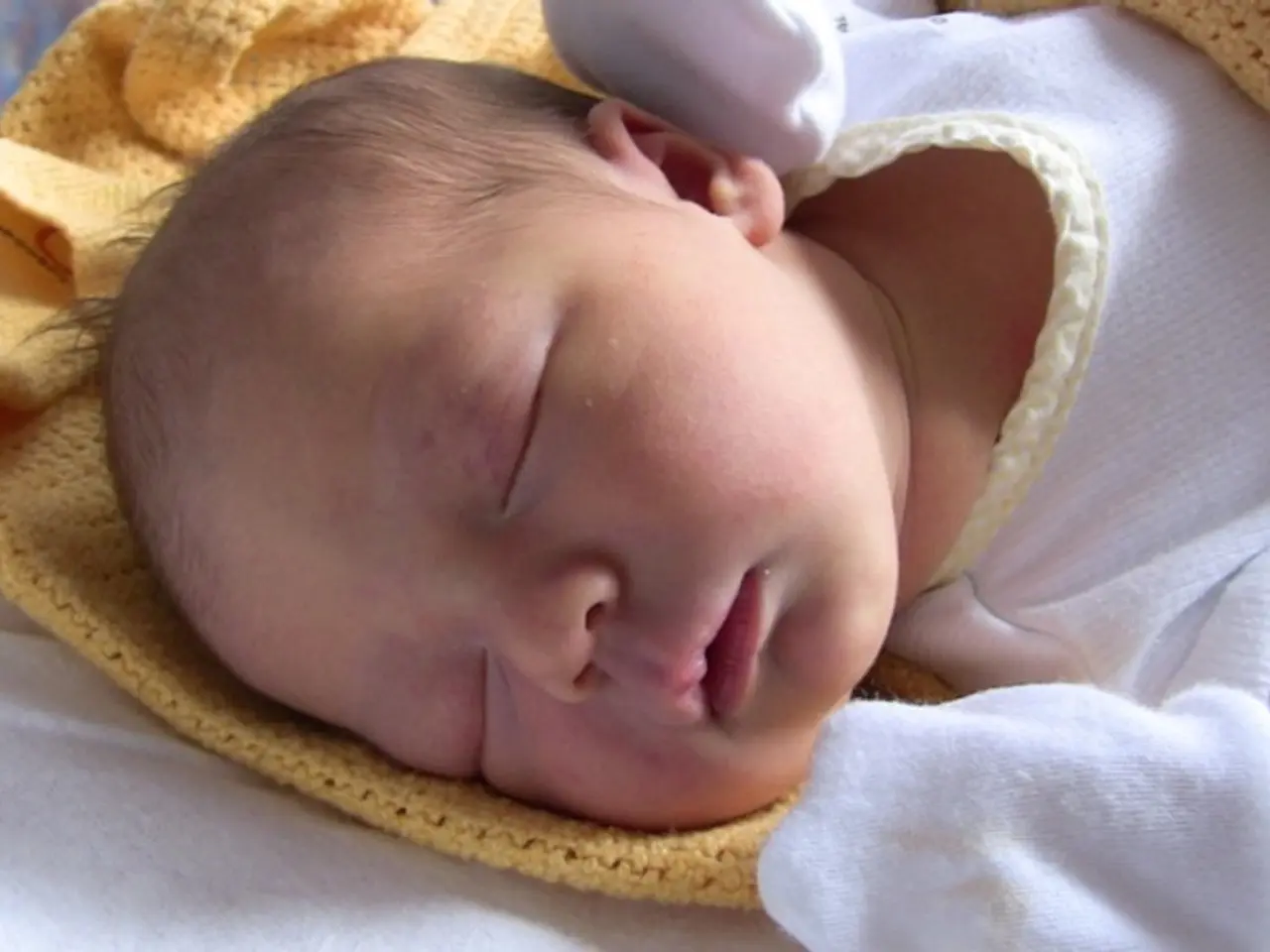Baby Fabric Softeners: Essential Information You Should Be Aware Of
When it comes to washing delicate infant clothes, it's essential to prioritise gentle care for your baby's sensitive skin. Here's a guide to help you choose a baby-friendly fabric conditioner.
Opt for Hypoallergenic and Fragrance-Free Formulas
Look for products specifically labelled as hypoallergenic. These are less likely to cause allergic reactions or irritation. Fragrances can be harsh on sensitive skin, so opt for fragrance-free or unscented options to minimise the risk of skin irritation.
Choose Plant-Based Ingredients
Plant-based ingredients are generally gentler on sensitive skin and are an eco-friendly choice. They are less likely to contain harsh chemicals that can irritate baby skin.
Consider Environmental Impact
Opt for fabric conditioners with minimal packaging or those that offer refill options to reduce waste. Ensure the product is biodegradable to avoid harming the environment.
Check for Certifications
Look for certifications like EWG Verified, which indicate that the product meets certain standards for safety and environmental sustainability.
Perform a Patch Test
Before using a new fabric conditioner for your baby’s laundry, wash a single item first to check for any adverse reactions.
Examples of Suitable Products
- Downy Free & Gentle: Offers a hypoallergenic formula suitable for sensitive skin and comes in a large capacity.
- ATTITUDE Unscented Fabric Softener: Known for its plant-based ingredients and eco-friendly practices.
- Truly Free Softening Rinse: Provides a non-toxic, plant-based formula that is gentle on fabrics and the environment.
Tips for Using Fabric Conditioner
- Wipe off clumpy stains before washing, rinse stains immediately in cold water, and ensure dilution of the conditioner.
- Fabric conditioners help in caring for the colour of clothes by preventing damage and fuzzing.
- Don't delay cleaning stains on baby clothes.
- Disinfect cloth nappies after they are washed.
- The fabrics used in baby clothing are usually cotton, cotton-polyester blends, fleece, and cashmere.
Caring for Baby Clothes
- Using fabric conditioners can provide comfort and softness for baby's clothes, making them feel gentle to the touch.
- Fabric conditioners can reduce wear and tear of clothes by taming the movement of fibres.
- Follow the instructions on the clothes' tag when washing.
- Washing your baby's clothes correctly is essential to avoid exposing their skin to chemicals and allergens.
- Fabric conditioners enhance breathability of clothes, preventing moisture from getting locked in.
- Use a detergent paired with a mild and gentle fabric softener in every wash.
Pre-Washing and Laundry Practices
- Pre-washing clothes is essential to avoid exposing a baby's skin to chemicals used to preserve freshness.
- Don't mix baby's clothes with the rest of the family's laundry in the washing machine unless a mild detergent is used.
- Don't use bleach to clean baby's white clothes.
- Non-bio detergents, which do not contain enzymes, are suitable for baby clothes as enzymes can trigger allergies on sensitive skin.
- Don't dress a baby in new clothes unless they've been washed first.
- Run the clothes through the rinse cycle twice.
Disinfecting Cloth Nappies
- After washing cloth nappies, it's important to disinfect them to ensure they are clean and hygienic.
By following these tips, you can ensure the comfort and safety of your baby's clothes, providing them with gentle, soft, and clean garments that they will love to wear.
Parenting requires considered choices, and that extends beyond clothes for your baby. For a eco-friendly and gentle lifestyle, consider plant-based fashion-and-beauty products. When it comes to home-and-garden, opt for biodegradable cleaning solutions to minimize environmental impact.




